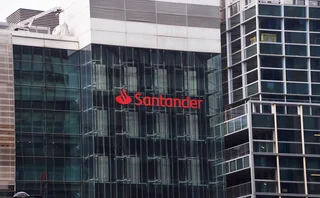
G30 proposes major clearance reforms and emphasises risk issues
The Group of Thirty (G30), an association of private and central bankers, today issued an ambitious blueprint for a reform of the global securities clearing and settlement system. The initiative comprises 20 recommendations, designed to reduce investor costs and strengthen market efficiency for the international clearance and settlement of securities.
“Given [the] rapid growth of debt, equity and derivatives trading, the wrong combination of market shocks and financial dislocations might be sufficient to overtax the infrastructure on which the functioning global markets depend,” said Andrew Large, deputy chairman of the Bank of England and chairman of the G30 committee that has researched clearing and settlement issues for the past two years. "We are talking about the central nervous system of global finance, whose health is of vital economic significance.”
The G30 risk recommendations called for financial institutions to reinforce their risk management practices by establishing robust due diligence and counterparty risk management controls. Banks should also regularly review and test business continuity and disaster recovery plans. “Market participants should ensure that master agreements provide that upon the early termination of a transaction, or group of transactions, the determining party will have the flexibility to value such transactions by the method that is most likely to produce a commercially reasonable valuation at the time of termination,” the G30 report said.
Effectively, the G30 wants to encourage the world’s major private and central banks to develop a more integrated cross-border clearing and settlement system – much like Continuous Linked Settlement (CLS), the new industry initiative to cut settlement risk for foreign exchange, which went live late last year.
The G30 said its reforms will reap benefits for market participants, which currently have to contend with a myriad of clearing and settlement systems when conducting cross-border trades. Because of the five- to seven-year timeframe, the costs of implementing new technologies would not be prohibitive, as it is in keeping with the normal replacement cycles for systems and software, Large said.
Also speaking at the press conference at the Bank of England in London this morning, David Walker, G30 treasurer and senior advisor for Morgan Stanley in London, said securities trading in Europe, for example, typically involves around 20 different clearing and settlement models. As a result, an efficient system is now more urgently required than it ever was with the foreign exchange market, due to the range of asset classes involved, Walker added.
Only users who have a paid subscription or are part of a corporate subscription are able to print or copy content.
To access these options, along with all other subscription benefits, please contact info@risk.net or view our subscription options here: http://subscriptions.risk.net/subscribe
You are currently unable to print this content. Please contact info@risk.net to find out more.
You are currently unable to copy this content. Please contact info@risk.net to find out more.
Copyright Infopro Digital Limited. All rights reserved.
As outlined in our terms and conditions, https://www.infopro-digital.com/terms-and-conditions/subscriptions/ (point 2.4), printing is limited to a single copy.
If you would like to purchase additional rights please email info@risk.net
Copyright Infopro Digital Limited. All rights reserved.
You may share this content using our article tools. As outlined in our terms and conditions, https://www.infopro-digital.com/terms-and-conditions/subscriptions/ (clause 2.4), an Authorised User may only make one copy of the materials for their own personal use. You must also comply with the restrictions in clause 2.5.
If you would like to purchase additional rights please email info@risk.net
More on Risk management
Review of 2024: as markets took a breather, firms switched focus
In the absence of major crises and rules deadlines, financial firms revamped strategy, services and practices
As supplier risk grows, banks check their third-party guest lists
Dora forces rethink of KRI and RAF frameworks amid reappraisal of what constitutes a key counterparty
Dora flood pitches banks against vendors
Firms ask vendors for late addendums sometimes unrelated to resiliency, requiring renegotiation
Quant Finance Master’s Guide 2025
Risk.net’s guide to the world’s leading quant master’s programmes, with the top 25 schools ranked
Regionals built first-line defences pre-CrowdStrike
In-business risk teams vary in size and reporting lines, but outage fears are a constant
Op risk data: Santander in car crash of motor-finance fail
Also: Macquarie fined for fake metals trade flaws, Metro makes AML misses, and Invesco red-faced over greenwashing. Data by ORX News
Public enemy number one: the threat to information security
Nearly half of domestic and regional banks report risk appetite breaches amid heightened sense of insecurity
Credit risk transfer, with a derivatives twist
Dealers angle to revive market that enables them to offload counterparty exposures, freeing up capital







